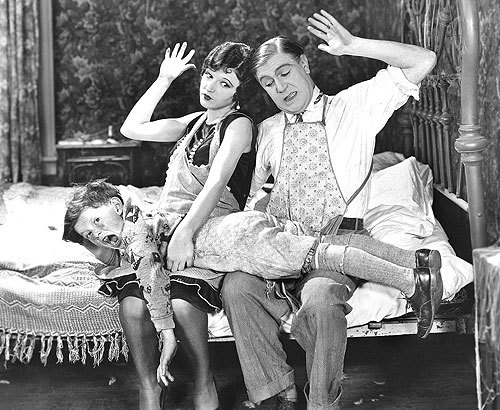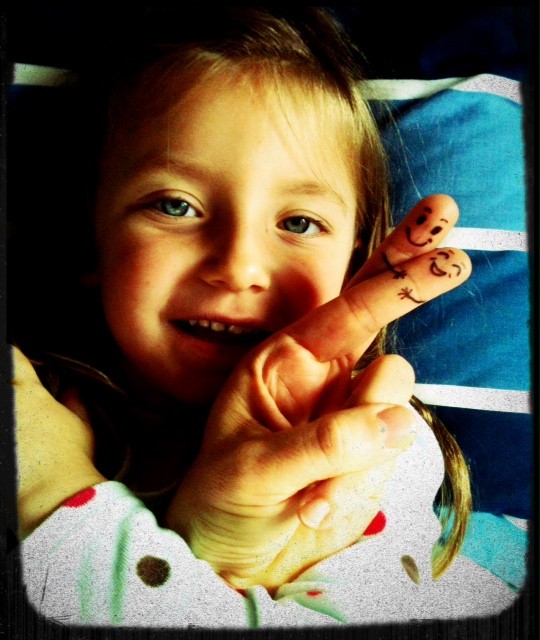Children and Corporal Punishment: Time to Recycle That Can of Whoop-Ass in the Dustbin of History.
“If we really want a peaceful and compassionate world, we need to build communities of trust where all children are respected, where home and school are safe places to be and where discipline is taught by example.” ~ Desmond M. Tutu, Archbishop Emeritus, Global Initiative to End All Corporal Punishment of Children, 2006
Recently, I got into a heated argument with a friend over a provocative statement I made about corporal punishment.
I was discussing the mixed messages that many adults casually and often lay on children — messages that come from a mistaken belief that they have the inside track on moral authority.
I wrote, “If you tell your child that hitting others is wrong and you hit your child, for any reason, you are a damned hypocrite.” Seemed to me to be a no-brainer statement of fact backed by reason.
But, no — apparently it isn’t so reasonable, judging by the hue and cry that answered me.
I was accused of foisting my unwelcome opinion on others, of telling other parents that I am right and they are wrong because I have chosen to spare my six-year-old daughter from the physical pain and fear of my wrath if she misbehaves.
It seems that many adults believe that people, in general, these days coddle their children. In the old days, these experts of coddling behavior assert, no one had a problem with spanking.
Well, I call bullshit on that. Unless you have extensive experience in time-traveling and are able to read the minds of every person that has ever lived and died on the planet, you are (if you will forgive me) talking out of your ass.
“Children ought to be led to honorable practices by means of encouragement and reasoning, and most certainly not by blows and ill treatment.” ~ Plutarch, circa 45 -120 CE
Plutarch? Wasn’t he the fellow that was responsible for the plots of half of William Shakespeare’s plays?
Back in the day of Shakespeare there was the common refrain, “Spare the rod and spoil the child.” But, just because the refrain was common it doesn’t mean that all teachers agreed with it. Certainly not one of England’s most famous teachers of the day.
He wrote:
“Chide not the pupil hastily, for that will both dull his wit and discourage his diligence, but admonish him gently, which shall make him both willing to amend and glad to go forward in love and hope of learning. Let the master say, ‘Here ye do well.’ For, I assure you, there is no such whetstone to sharpen a good wit and encourage a love of learning as his praise. In mine opinion, love is fitter than fear, gentleness better than beating, to bring up a child rightly in learning.” ~ Roger Ascham, tutor to Queen Elizabeth I from The Scholemaster (1570)
Seems there were some smart folks in the old days that would disagree with conventional wisdom.
But, this isn’t enough to persuade most pro-spanking people who will self-righteously cry foul and claim that they are only delivering a light blow that doesn’t really hurt.
It doesn’t really adversely effect my child, they say with indignation.
However…
“The claim that mild punishment (slaps or smacks) have no detrimental effect is still widespread because we received this message very early from our parents who had taken it over from their parents. Unfortunately, the main damage it causes is precisely the broad dissemination of this conviction. The result is that each successive generation is subjected to the tragic effects of so-called ‘physical correction.’
Physical cruelty and emotional humiliation not only leave their marks on children, they also inflict a disastrous imprint on the future of our society. Information on the effects of the “well-meant smack” should therefore be part and parcel of courses for expectant mothers and of counseling for parents.” ~ Alice Miller, Every Smack is a Humiliation
I cannot be so diplomatic in my language as Alice Miller. So many people seem to find it convenient to ignore the fact that the threat of violence is also harmful.
And, let’s face it, threats of violence is the way of the bully. Do you really want your child to think of you as a bully because you want them to know who’s in charge?
Let’s look at the reality of the structure of any family hierarchy. Grown-ups are at the top and children are at the bottom. Adults are larger and physically more powerful than children, have more knowledge of the world, and are more experienced with social relationships.
Here is a more blunt way of putting it:
“Any form of corporal punishment or ‘spanking’ is a violent attack upon another human being’s integrity. The effect remains with the victim forever and becomes an unforgiving part of his or her personality—a massive frustration resulting in a hostility which will seek expression in later life in violent acts towards others.
The sooner we understand that love and gentleness are the only kinds of called-for behavior towards children, the better. The child, especially, learns to become the kind of human being that he or she has experienced. This should be fully understood by all caregivers.” ~ Ashley Montagu, Anthropologist, Personal Communication
Please don’t give me the “Spanking prevents children from becoming juvenile delinquents” argument. In many cases, the complete opposite is closer to the truth.
I’ve worked as a mentor and team leader for a program that helps at-risk youth deal with their issues, so I’m hip to that scene. I was also on the board of directors for Big Brothers Big Sisters of Sonoma County in Northern California so I’m not just speaking as a parent of a six-year-old child.
I’m not claiming that all this experience makes me an expert on children, but I do think it gives me an educated perspective on child psychology and behavior.
I don’t think that all parents that spank regularly or have spanked are necessarily bad parents or bad people, that they don’t love their children. This isn’t about that. But I do think parents are misguided if they believe that spanking or the threat of spanking is the only way to discipline a child just because “I was a spanked and I turned out alright” or because “That’s the way my parents did it.”
I think the Alice Miller quote addresses that argument quite well. The term vicious circle is very appropriate in this context.
Here’s a question to ask a parent that believes spanking is a perfectly acceptable and reasonable form of discipline:
“How would you feel if your boss at work took you over their knee and started whaling on your ass if you screwed-up on the job or didn’t get your work done on time or just said you didn’t want to do it? What would you do if that was the dynamic of the relationship?”
(Bondage aficionados, please ignore this question.)
So, if a fellow adult in your presence is misbehaving or not acquiescing to your particular whim of the moment, do you have the right to strike them with your hand or a belt as a form of corrective behavioral therapy?
Paulo Sergio Pinheiro of the UN Sub-commission on the Promotion and Protection of Human Rights in Geneva says ‘no.’
He says that “Children should never receive less protection than adults” and that we must “put an end to adult justification of violence against children, whether accepted as ‘tradition’ or disguised as ‘discipline’.”
I could provide many more quotes and beef up this article with thousands of words by people who have done the research that tells us that corporal punishment is detrimental to the physical and emotional health of children and is not effective punishment.
Threats of physical punishment (consequences built on fear of being hurt) are not effective or instructive ways to convince a child to change a behavior. It’s called bullying.
There is another issue — the subject of hypocrisy, that got completely lost here as well as in my original exchange: It seemed that no matter how many times I tried to rephrase my argument and get back to the subject of hypocrisy, it was as if the word — the very idea — was not computing.
This is alarming to me as a parent because I am truly trying very diligently to teach my daughter how to successfully navigate through the complex and often bewildering world of double standards in social relationships.
I cannot with a clear conscience tell my daughter that she shouldn’t say certain words because they are bad words because I often use those words.
I can tell her that some words used in certain contexts can be harmful to people and I can give her other word options. I can and do give her tips on how to best communicate with the general populace, while giving her free reign to experiment with language in the realm of her own safe living environment.
I do this because I want my child to to test her limits with me and others and still give her boundaries and consequences if she goes too far. I refuse to micromanage every behavior just because it may be annoying to me.
And now, a confession. My own personal experience with disciplining my child is not completely stellar.
Even though I have never put my daughter over my knee and spanked her, I did give her bottom a smack once, when she was misbehaving and refused to listen to reason.
I was frustrated and nothing else I tried was working.
That smack came before thought. It was pure instinct and reaction. And, her immediate response, “Why did you do that?” (said in shock, pain and indignation) stopped me cold.
Why, indeed? I had no legitimate reason to give her and there was nothing I could say that wouldn’t expose me as a hypocrite.
That was the moment, two years ago, when I made a complete empathic connection with my child. I felt what she felt, except for the physical sting of the smack, which was the least of the violation. I vowed I would never do it again.
It really is that simple: Do not do violence or threaten to do violence to your children.
When you discipline children with physical violence or the threat of physical violence you are engaging in a physical and mental brutality toward human beings who cannot and are not allowed to defend themselves.
And, if after that, you tell a child (or anyone of any age) that they should not hit others because hitting is wrong, you are a damned hypocrite.
A child needs at least one safe haven in a world full of expected and unexpected dangers and surprises. That place should be in their own home.
And children should be able to trust at least two other people in a lifetime that will certainly provide plenty of moments of betrayal and dishonesty. Those two other people should be the parents.
***
{Join us on Facebook, Twitter, Instagram & Pinterest}


